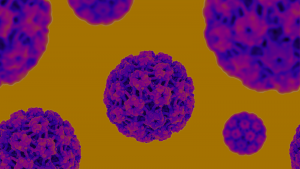By Fred Wyand
When I was growing up in small towns, porn (at least of the variety offered to heterosexual men) wasn’t that hard to find. There was always an X-rated theater not far away, Playboy and Penthouse were in most of the convenience stores, and so on. The selection was limited though, and acquiring or viewing it usually involved some degree of embarrassment or inconvenience, perhaps even a trip to a drive-in or an aging urban theater whose manager hoped to find fiscal solvency by swapping “Mary Poppins” for “Debbie Does Dallas.”
That’s all changed, of course, in this wired digital age. Online offerings cover the gamut: hardcore porn sites, underwear models, sites that cater to specific fetishes, romance novels and role plays. The variety on the electronic buffet takes us a long way from the days of watching a midnight showing of a skin flick at the Bijou on Main Street.
What about the notion that some people become ensnared in an out of control online porn spiral? A Swedish study found that 5% of women and 13% of men report some type of sexual problems related to online use, including the frequency and amount of time spent looking at pornographic imagery.
But does that mean most of these folks are truly addicted to porn? In the Swedish research only 2% of women and 5% of men reported having “serious” problems. Further, a number of experts don’t believe that sex or porn addiction actually exist, and say such behaviors are perhaps better described as compulsions rather than true addictions.
For insight we turn to Dr. Eli Coleman, professor emeritus and former director of the Institute for Sexual and Gender Health (ISGH)* at the University of Minnesota Medical School. Dr. Coleman, conducts psychological research in treating a variety of sexual disorders, compulsive sexual behavior, HIV prevention, transgender health, sexual identity and sex therapy.
Do we have an idea of the extent to which excessive pornography use actually causes a significant and troubling impact in people’s lives?
Eli Coleman: First of all, we have no idea what is excessive. The range of pornography use is quite varied. The amount of use is not necessarily correlated with problematic behavior. One has to look at the impact of the use of pornography on an individual while understanding that most of it is quite normal, fulfilling desires for erotic expression through fantasy. For some, however, the behavior could be driven, obsessive, compulsive, and be a way of mitigating anxiety and depression with short term relief, but in its excess cause more distress causing a viscous cycle. In other words, pornography use could be as problematic as any healthy behavior that is taken to its extreme.
We do know that some people develop unhealthy patterns of behavior involving pornography use. We have no idea of the exact extent of this problem because of the lack of research on this issue in the general public. Most of what we know comes from clinical samples. Most importantly, we need to recognize that this is a normative behavior which can become significant and troubling for some people.
What are your thoughts on categorizing the excessive use of porn as a compulsive behavior rather than an addiction?
I don’t think that excesses in behaviors should be viewed as addictions. I think that term “addiction” is overused and implies that all behavioral excesses can be explained by some similar mechanism. What we know about alcohol and drug addictions cannot be simply transferred to other behavioral excesses.
Sex is a basic appetite which for some people becomes dysregulated or out of balance for a variety of reasons. For some it is a problem of impulse control, for others it is more like an obsession, and for others it is like a compulsion. And for others, it is a part of personality structure and has nothing to do with impulse control, obsessions or compulsions.
I prefer the term impulsive/compulsive sexual behavior which simply describes the behavior but does not imply what the underlying mechanisms to be – and even that term is limiting. Dysregulated sexual behavior might even be a better term.
Viewing excessive use of pornography as an addiction implies an underlying mechanism that is akin to alcohol and/or drug addiction and suggests a treatment approach which oftentimes recommends abstinence and reliance on a 12-step approach to behavioral control. We do not treat eating disorders as an addiction so why should be treat excessive pornography use in this way? This does not make sense.
Porn is fairly vilified across the social and political spectrum, facing opposition from feminists and social conservatives alike. Is this fair? Is pornography ever non-exploitative?
Certainly there is concern about the use of pornography because of the concern that it leads to unhealthy sexual behaviors. However, we have ample evidence that this is simply not the case.
Aggressive impulses are part of our human nature. For most societies, there are avenues built to allow the expression of these aggressive impulses in ways that minimize harm from these aggressive impulses. Sports is one example which serve a purpose of allowing expression of aggressive impulses within defined limits.
Can we ever say that there is no exploitation in our behaviors? Mostly we develop systems to promote mutual consent and minimize exploitation.
Regardless of how one feels about pornography, in this increasingly wired world it won’t be going away. How does society respond to porn in a way that’s rational, responsible, and also realistic?
Like any behavior, societies need to regulate them. Banning certain behaviors which might be viewed as less than desirable has rarely worked. Gambling is part of our human psyche. Unregulated or forbidden has led to many more abuses than providing means of gambling within prescribed limits. Pornography should be viewed in the same way.
*In May 2023, ISGH was renamed the Eli Coleman Institute for Sexual and Gender Health.






